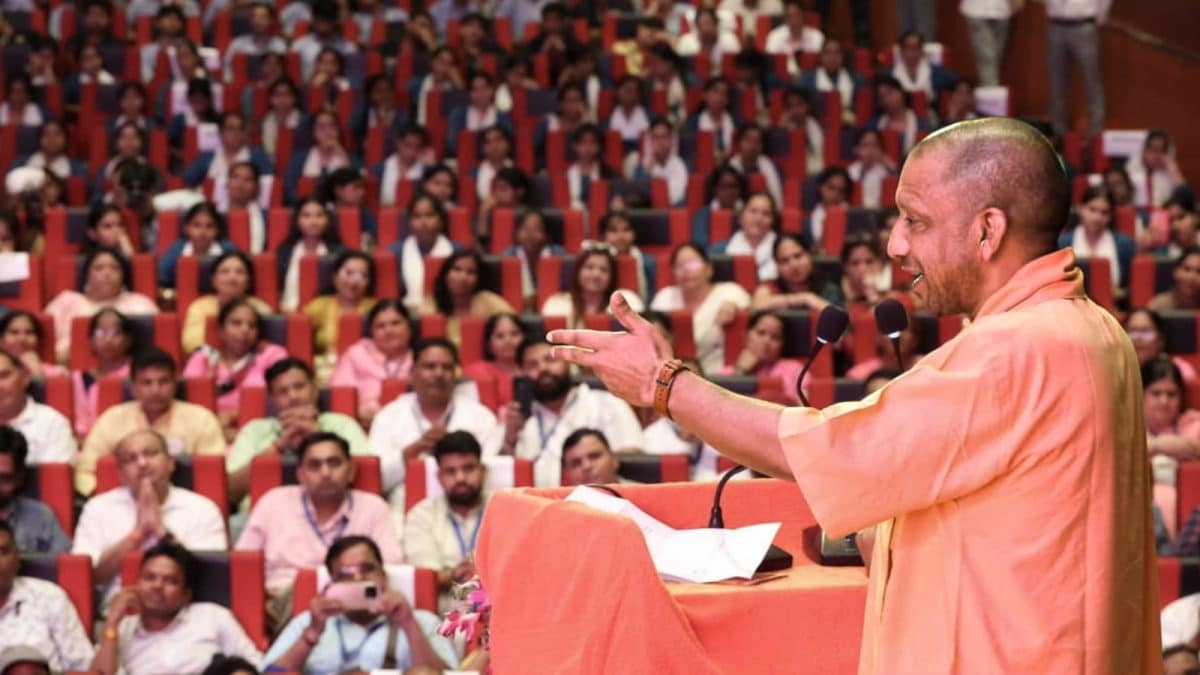Last Updated:
The accused have challenged a Delhi HC order denying them bail, which states that “conspiratorial” violence under the garb of demonstrations or protests could not be allowed

Activists Umar Khalid, Sharjeel Imam and eight others have been in jail over five years in the 2020 Delhi riots larger conspiracy case. (Image: PTI/File)
The Supreme Court on Monday sought a response from the Delhi Police on the bail pleas of activists Umar Khalid, Sharjeel Imam, Gulfisha Fatima and Meeran Haider in the UAPA case related to the alleged conspiracy behind the 2020 Northeast Delhi riots.
Issuing a notice, a bench of Justices Aravind Kumar and NV Anjaria posted the matter for October 7.
Recommended Stories
“We could not hear this on Friday (September 19) since Justice Manmohan could not hear it,” the bench was quoted by Bar and Bench.
The Bar and Bench report said when the counsel for the accused pointed out that they had been in jail for more than five years, the court was quoted: “Yes we will hear you and dispose of it…issue notice in all.”
The activists have challenged a September 2 Delhi High Court order, which denied bail to nine people including Umar Khalid and Sharjeel Imam saying “conspiratorial” violence under the garb of demonstrations or protests by citizens could not be allowed.
Besides Khalid and Imam, those who faced bail rejection are Gulfisha Fatima, Meeran Haider, Mohd Saleem Khan, Shifa Ur Rehman, Athar Khan, Abdul Khalid Saifi and Shadab Ahmed. The bail plea of another accused, Tasleem Ahmed, was rejected by a different high court bench on September 2.
The accused, who have denied all the allegations against them, have been in jail since 2020 and had moved the Delhi HC after a trial court rejected their bail pleas.
The high court had said the Constitution affords citizens the right to protest and carry out demonstrations or agitations, provided they are orderly, peaceful and without arms, and such actions must be within the bounds of law. While it said the right to participate in peaceful protests and to make speeches in public meetings was said to have been protected under Article 19(1)(a) and could not be blatantly curtailed, it observed the right was “not absolute” and “subject to reasonable restrictions”.
“If the exercise of an unfettered right to protest were permitted, it would damage the constitutional framework and impinge upon the law and order situation in the country,” the bail rejection order stated.
Khalid, Imam and the rest of the accused were booked under the Unlawful Activities (Prevention) Act, or UAPA, and provisions of the erstwhile Indian Penal Code for allegedly being the “masterminds” of the 2020 riots, which left 53 people dead and more than 700 injured. The violence erupted during the protests against the Citizenship (Amendment) Act, or CAA, and the National Register of Citizens (NRC).
(With agency inputs)
About the Author
The News Desk is a team of passionate editors and writers who break and analyse the most important events unfolding in India and abroad. From live updates to exclusive reports to in-depth explainers, the Desk d…Read More
The News Desk is a team of passionate editors and writers who break and analyse the most important events unfolding in India and abroad. From live updates to exclusive reports to in-depth explainers, the Desk d… Read More
September 22, 2025, 16:51 IST
Loading comments…
Read More



